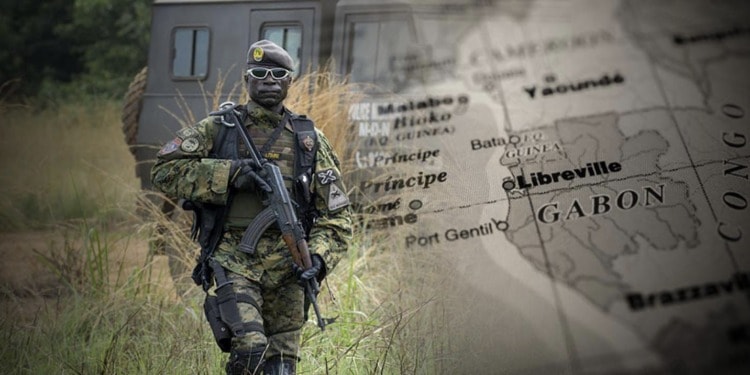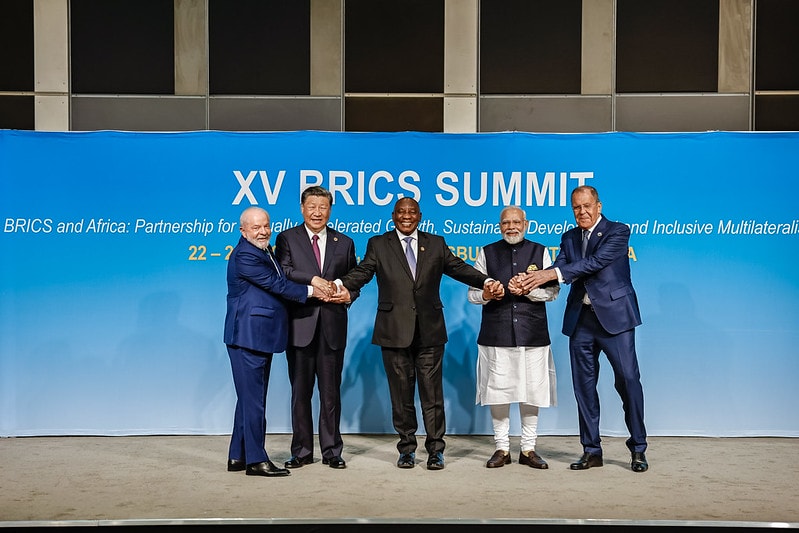The military has taken over in Gabon. Amidst claims of a “truncated” victory. Deposed Presiden Ali Bongo made several commitments to sustainability since his first election in 2009. Let’s evaluate them
Gabon’s Abundant Resources and Complex History
Gabon’s identity is intricately tied to its vast natural resources, including oil wealth, lush rainforests, and remarkable biodiversity. While these resources offer economic prospects, they have also presented challenges regarding sustainable exploitation.
Throughout its history, Gabon has struggled to balance using its natural resources with preserving its ecological treasures. However, the country has made significant progress since President Ali Bongo’s inauguration in 2009. Thanks to various innovative environmental policies, Gabon has since emerged as a model for conservation.
In 2021, this country achieved a significant milestone by being the first to receive payments for reducing forest emissions. On the surface, these factors seem to align with the country’s goals of transitioning towards a sustainable, green economy.
Ali Bongo’s Environmental Commitments and Achievements
President Ali Bongo is recognised as a leader in environmental conservation by the global community, and rightfully so.
The One Forest Summit, a significant international conference in Libreville, Gabon’s capital, prominently featured discussing tropical forest preservation and funding. The summit brought together key stakeholders such as politicians, global corporations, scientists, and NGOs to advance scientific cooperation, promote sustainability, and secure financing within the forestry sector.
President Ali Bongo Ondimba, at the summit, emphasised, “There are no better investments today than investing in our forests.”
In addition, he secured a $500 million deal this year to protect Gabon’s coastline, which aims to safeguard the country’s unique marine ecosystems and the livelihoods of coastal communities.
It is indisputable that this is a remarkable achievement, as it is the most substantial agreement signed by any African nation to refinance its debt and safeguard marine resources.
RELATED ARTICLES: Why Are Governments Still Massively Subsidizing Fossil Fuels? | COP28: What’s the Real Plan?
The Nuances of Green Investments
Despite Ali Bongo being lauded as a green leader in the fight against global warming and proudly safeguarding the “second green lung of the planet,” a deeper narrative uncovers less green intentions.
Gabon has taken steps towards environmental preservation by banning single-use plastic bags. Still, the country’s ecological impact overshadows its image as a global climate advocate.
A recent investigation by Mediapart revealed that Gabon is a significant emitter of CO2 due to its practice of “gas flaring. This involves burning gases extracted during crude oil extraction.
Even Assala Energy, Gabon’s second-largest oil company, continues this practice inherited from Shell. All in all, we cannot help but question the country’s commitment to being an ecological leader.
Furthermore, Gabon’s leniency towards oil and gas producers despite their emissions highlights the nation’s prioritisation of economic interests over the environment.
Gabon’s environmental preservation efforts also deserve scrutiny due to its history of selective deforestation, contradicting its claims as a global timber producer.
This misleading ecological image Gabon portrays is not unique. It aligns with a broader trend of “greenwashing” supported by Western powers. Financial support from these countries may contribute to the veneer of environmental responsibility.
However, at the end of the day, the country is not fully addressing the environmental degradation that it regularly faces.
Harmonizing Democracy and Sustainability in the Future
President Ali Bongo’s endeavours towards environmental sustainability in Gabon are commendable. Nonetheless, the recent military coup has exposed the vulnerability of Gabon’s democratic institutions.
Moreover, the Bongo family’s 56-year grip hold on power makes it hard to assess just how reliable their sustainability claims are. For decades, the Bongos have faced several allegations of exploiting natural resources such as oil riches and rainforests. All of these concerns are especially relevant given that 33% of the population lives below the poverty line.
If the current chaos continues, those living below the poverty line will inevitably bear the brunt of the consequences. It would not be surprising if locals show support for the military, given the country’s history of attempted takeovers.
The military coup in 🇬🇦 Gabon is gaining HUGE amounts of support from locals. pic.twitter.com/dROOOjuEJU
— Rev Laskaris (@REVMAXXING) August 30, 2023
Moving forward, Ali Bongo’s top priority should be to uphold democratic principles while also pursuing truly eco-friendly initiatives. Striking a balance between these two goals will be vital in shaping the country’s future.
Editor’s Note: The opinions expressed here by the authors are their own, not those of Impakter.com — In the Featured Photo: Gabon Military Officer. Featured Photo Credit: Twitter









